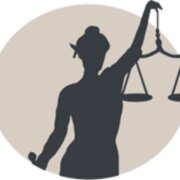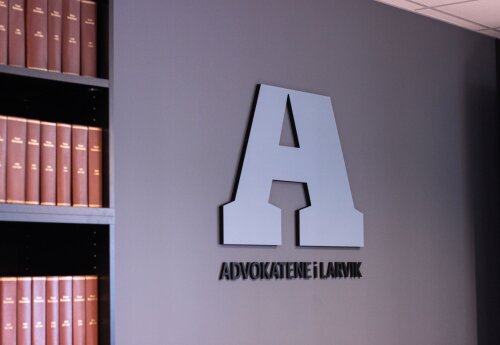Best Government Relations & Lobbying Lawyers in Norway
Share your needs with us, get contacted by law firms.
Free. Takes 2 min.
Or refine your search by selecting a city:
List of the best lawyers in Norway
About Government Relations & Lobbying Law in Norway
Government relations and lobbying in Norway are integral components of the political landscape, involving interactions between businesses, non-profit organizations, and governmental institutions to influence policy-making. Lobbying in Norway is regulated to ensure transparency and accountability, promoting ethical advocacy and safeguarding against undue influence. The regulations aim to provide an equitable environment where different interests can contribute to legal and policy development effectively.
Why You May Need a Lawyer
Engaging in government relations and lobbying activities often involves navigating complex legal and regulatory frameworks. You may require legal assistance in situations such as:
- Understanding and complying with transparency and disclosure requirements.
- Assisting in drafting and submitting policy proposals or amendments.
- Ensuring adherence to ethical standards in lobbying practices.
- Negotiating and interpreting legislative measures and contracts.
- Responding to inquiries from regulatory bodies regarding lobbying activities.
Legal professionals can provide strategic advice, ensuring that engagements are legally sound and align with your organizational goals.
Local Laws Overview
Lobbying in Norway is governed by various regulations and guidelines aimed at maintaining transparency and ethical practices. Key aspects include:
- Transparency Act: This Act mandates the disclosure of lobbying activities. Organizations engaged in lobbying must report their activities, objectives, and impacted policies.
- Register of Lobbyists: Norway maintains a public register where lobbyists and organizations disclose their interests, clients, and the issues they are lobbying for.
- Code of Conduct: Lobbyists are expected to adhere to ethical standards, ensuring that interactions are conducted with integrity and respect for the democratic process.
- Regulatory Oversight: A compliance body oversees lobbying activities, enforcing transparency, and integrity in the processes.
Frequently Asked Questions
What is lobbying?
Lobbying involves influencing public officials or government policy to promote specific interests. This can include direct interactions, public campaigns, and various strategies to inform or persuade policymakers.
Do I have to register as a lobbyist?
If you or your organization engages in activities intended to influence public officials, Norwegian law requires that you register in the Norwegian Register of Lobbyists.
What are the penalties for non-compliance with lobbying laws?
Failure to comply with lobbying regulations, including non-disclosure or unethical practices, can result in fines, being barred from lobbying, and damage to reputation.
How transparent is the lobbying environment in Norway?
Norway maintains a high level of transparency in lobbying activities to ensure public confidence in the policy-making process, supported by the mandatory public register of lobbyists.
Are there ethical guidelines for lobbyists in Norway?
Yes, there are specific ethical guidelines ensuring lobbying activities are conducted with integrity, honesty, and respect for democratic processes.
Can organizations engage in lobbying activities without hiring a lobbyist?
Yes, organizations can engage in lobbying activities themselves; however, they must still comply with registration and disclosure mandates.
How can I ensure compliance with Norwegian lobbying laws?
Working with a legal expert in government relations can help navigate compliance, understand legal obligations, and develop a compliant strategy.
What role does the Register of Lobbyists play?
The Register of Lobbyists is a public database listing lobbyists and their activities, ensuring transparency and accountability in lobbying efforts.
How can legal consultants assist in lobbying activities?
Legal consultants offer expertise in interpreting legislation, advising on compliance and ethical practices, and representing interests effectively before governmental bodies.
Are there restrictions on who can be a lobbyist?
While there are no specific restrictions on who can be a lobbyist, individuals must adhere to statutory requirements, including registration and ethical conduct.
Additional Resources
For more information and resources about government relations and lobbying in Norway, you may refer to:
- The Norwegian Ministry of Justice and Public Security for regulatory guidelines.
- The Norwegian Association for Public Affairs, which offers resources and support for professionals involved in lobbying.
- Local law firms specializing in government relations and lobbying for personalized legal assistance.
- The Norwegian Register of Lobbyists for regulatory compliance and transparency requirements.
Next Steps
If you need legal assistance in government relations and lobbying in Norway, consider the following steps:
- Identify specific needs or issues requiring legal expertise.
- Research and select a qualified legal firm or consultant specializing in government relations and lobbying law in Norway.
- Prepare relevant documentation and develop a clear understanding of your objectives and interests.
- Schedule consultations to discuss your specific circumstances and explore legal strategies.
- Ensure continued compliance by keeping informed about the latest developments in Norwegian lobbying law.
Taking these steps can help you navigate the legal landscape effectively, ensuring that your lobbying activities are compliance-focused and strategically aligned with your goals.
Lawzana helps you find the best lawyers and law firms in Norway through a curated and pre-screened list of qualified legal professionals. Our platform offers rankings and detailed profiles of attorneys and law firms, allowing you to compare based on practice areas, including Government Relations & Lobbying, experience, and client feedback.
Each profile includes a description of the firm's areas of practice, client reviews, team members and partners, year of establishment, spoken languages, office locations, contact information, social media presence, and any published articles or resources. Most firms on our platform speak English and are experienced in both local and international legal matters.
Get a quote from top-rated law firms in Norway — quickly, securely, and without unnecessary hassle.
Disclaimer:
The information provided on this page is for general informational purposes only and does not constitute legal advice. While we strive to ensure the accuracy and relevance of the content, legal information may change over time, and interpretations of the law can vary. You should always consult with a qualified legal professional for advice specific to your situation.
We disclaim all liability for actions taken or not taken based on the content of this page. If you believe any information is incorrect or outdated, please contact us, and we will review and update it where appropriate.
Browse government relations & lobbying law firms by city in Norway
Refine your search by selecting a city.















